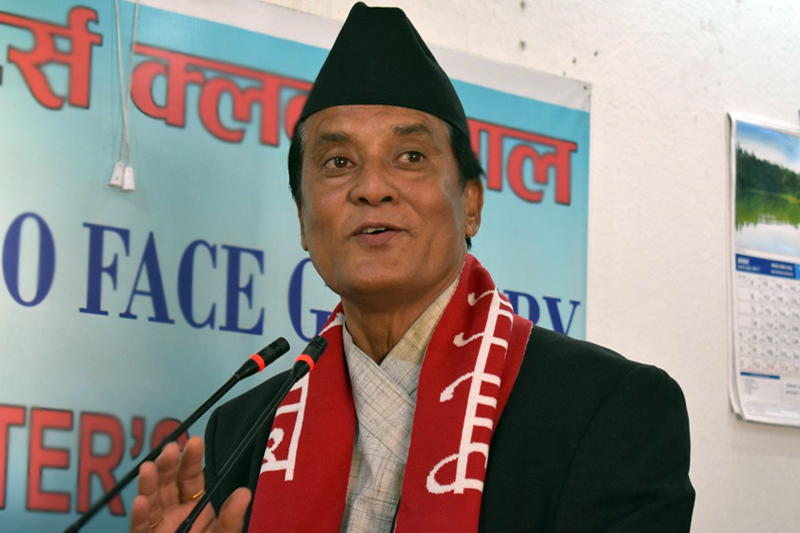Deuba won’t resign before NA election: Law minister Thapa
Kathmandu, December 18
Minister of Law, Justice and Parliamentary Affairs Yagya Bahadur Thapa said the caretaker government would not quit before holding the National Assembly elections.
Speaking at an interaction in Reporters Club here today, Thapa said Prime Minister Sher Bahadur Deuba-led government was a caretaker government whose main duty was to hold elections and it was yet to hold the National Assembly election. “Prime Minister Sher Bahadur Deuba should not quit before holding the upper house elections. He cannot quit even if he wishes to do so,” Thapa said in response to a query. He said as per the constitution, the House of Representatives could elect a new PM only after the Parliament took full shape and for that to happen, National Assembly election had to be held and the president had to endorse the National Assembly Election Ordinance.
Thapa argued that the Election Commission would be able to declare final results of parliamentary elections only after National Assembly elections were held. “The government has sent the ordinance as per constitutional provision and the president has no option but to endorse it,” Thapa said.
Refuting the CPN-UML leaders’ argument that single transferable vote system as proposed in the ordinance was not in conformity with the constitution, Thapa said the constitution only stated that the National Assembly would be held as per federal laws. “Federal laws are yet to be enacted. The constitution does not bar us from holding National Assembly election on the basis of single transferable vote system,” he argued.
Constitution expert Senior Advocate Surendera Kumar Mahto told THT that the government could issue an ordinance in the absence of the Parliament and the president was under constitutional obligation to endorse it. “The only rider is that the government cannot issue an ordinance that contradicts the constitution. If it does so, there is the judiciary to check it. The president has no power to use his/her conscience,” he argued.
Mahto said Article 86 (6) of the constitution did not place any restriction on the law-making body with regard to adoption of an electoral system. He said single transferable vote system would be the best for Nepal to ensure plurality in the upper house of the Parliament. “If the FPTP system is adopted in the upper chamber, then the party that has won majority of seats in the lower house can win almost all seats in the upper house,” Mahto argued. Another constitutional expert Bhimarjun Acharya said, “When representatives are elected by an electoral college, single transferable vote system is the most preferred option.”
READ ALSO:






